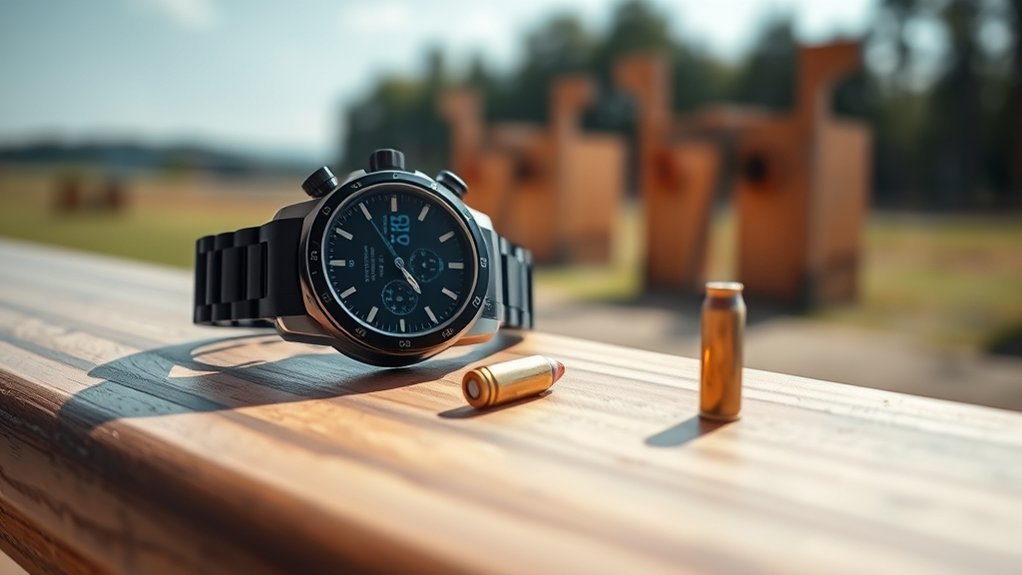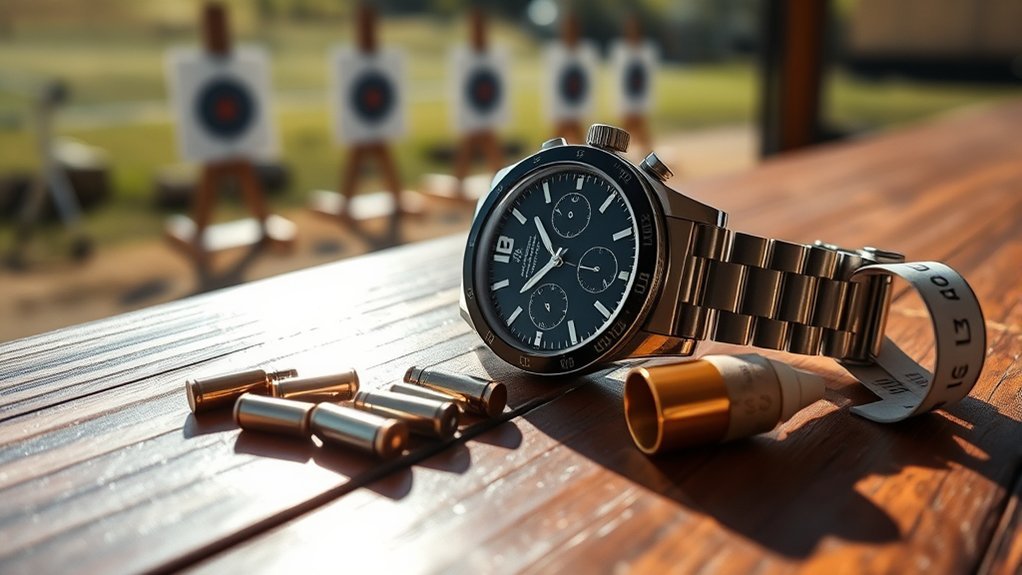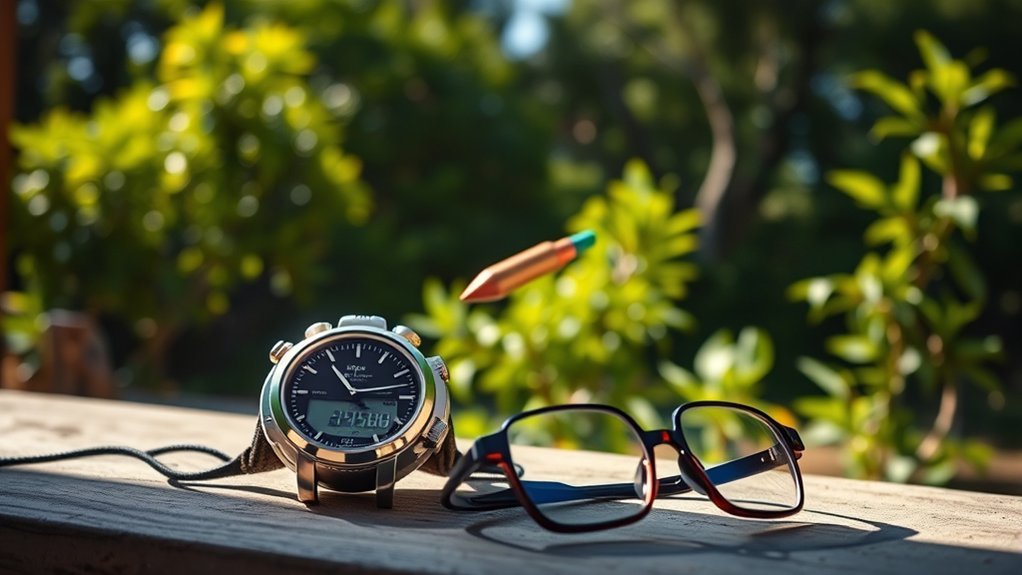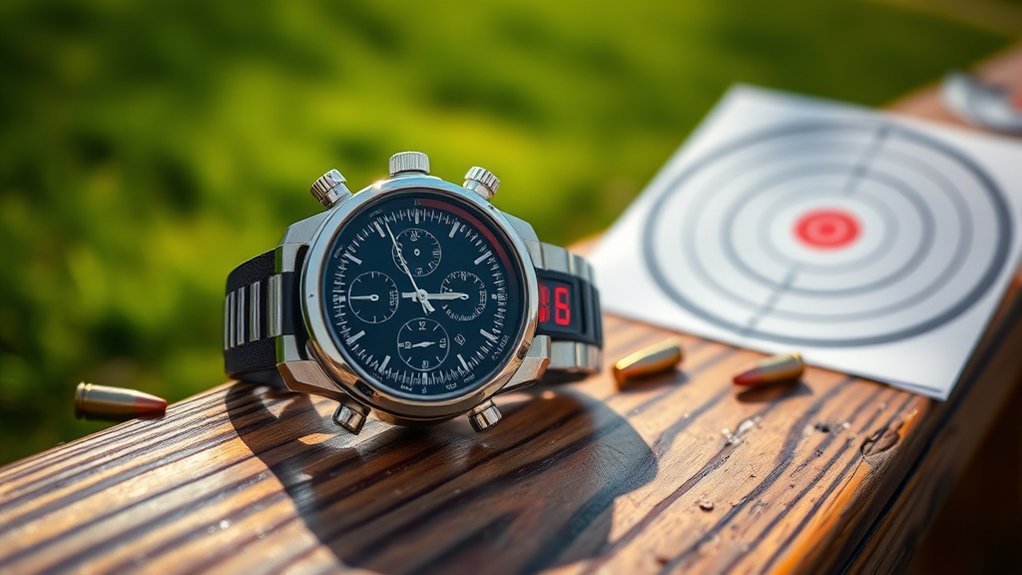When it comes to precision shooting, understanding the velocity of your projectiles is vital. A chronograph measures this speed, helping you gauge your ammunition’s performance. It’s not just about numbers; consistency in velocity can greatly affect your accuracy. By monitoring these measurements, you can fine-tune your loads for better results. But what factors influence these speeds, and how can you use this data effectively? Let’s explore the essential aspects of chronographs for shooters.
Understanding Velocity Measurements

When you’re aiming for accuracy in shooting, understanding velocity measurements is essential. Velocity refers to the speed of your projectile as it leaves the barrel, typically measured in feet per second (FPS) or meters per second (MPS). Knowing this value helps you predict bullet drop and wind drift, important factors for precise shooting.
A chronograph measures this velocity, allowing you to fine-tune your loads and improve performance. Different ammunition types can greatly affect velocity, so comparing results is critical. By monitoring these measurements, you’ll gain insights into how your equipment performs under various conditions. Ultimately, mastering velocity measurements can elevate your shooting skills and enhance your overall experience on the range.
The Importance of Consistency

While mastering velocity measurements is essential, the importance of consistency in your shooting practice cannot be overstated. Consistent shooting helps you identify improvement areas and refine your skills. It’s not just about how fast you shoot; it’s about making each shot count.
Here’s a simple breakdown of consistency in practice:
| Aspect | Impact |
|---|---|
| Grouping | Tighten shot patterns |
| Velocity Variability | Predictable outcomes |
| Performance Tracking | Better skill assessment |
When your shots are consistent, you build confidence and enhance your overall performance. So, focus on maintaining a steady grip, stance, and breathing to guarantee that each shot is as reliable as the last.
Factors Affecting Projectile Speed

Understanding the factors affecting projectile speed is essential for any shooter aiming to enhance their performance. Various elements can influence how fast your projectile flies, and knowing these can help you make informed adjustments.
- Barrel Length: Longer barrels can provide more acceleration to the projectile.
- Powder Charge: The amount and type of gunpowder directly affect the speed.
- Bullet Weight: Heavier bullets typically travel slower than lighter ones.
- Environmental Conditions: Wind, temperature, and humidity can impact speed.
- Rifling Twist Rate: The rate of twist in the barrel can stabilize the bullet, affecting its speed.
Utilizing Data for Ballistics Calculation
Accurate ballistics calculations are crucial for optimizing your shooting performance, as they provide essential data that can greatly enhance your precision. By utilizing the velocity measurements from your chronograph, you can determine key factors such as bullet drop, wind drift, and time of flight. These calculations allow you to adjust your aim and improve your hit probability.
You’ll want to input your projectile’s weight, ballistic coefficient, and environmental conditions, like altitude and temperature, into a ballistic calculator. This streamlined process helps you visualize your shot trajectory and make informed adjustments on the fly. Ultimately, leveraging this data not only boosts your confidence but also elevates your overall shooting experience, turning every shot into a calculated decision.
Choosing the Right Chronograph for Your Needs
When it comes to choosing the right chronograph for your needs, you should consider factors like accuracy, ease of use, and compatibility with your shooting setup. Here are some key points to help you decide:
- Accuracy: Look for models that provide consistent and reliable readings.
- Detection Method: Decide between optical and infrared options based on your environment.
- Data Output: Check if the chronograph can connect to your devices for data analysis.
- Portability: Consider weight and size, especially if you’ll be traveling to various shooting locations.
- Budget: Set a budget that balances features and quality without overspending.
Choosing wisely will enhance your shooting experience and guarantee you get the most accurate readings for your needs.
Conclusion
In the world of shooting, a chronograph is your best friend, providing insights that can transform your performance from good to legendary. By understanding velocity measurements and the factors affecting speed, you can fine-tune your ammunition for peak accuracy. Whether you’re a competitive shooter or a weekend warrior, choosing the right chronograph is essential. So, gear up, monitor your data, and watch as your shooting skills soar to unimaginable heights!

